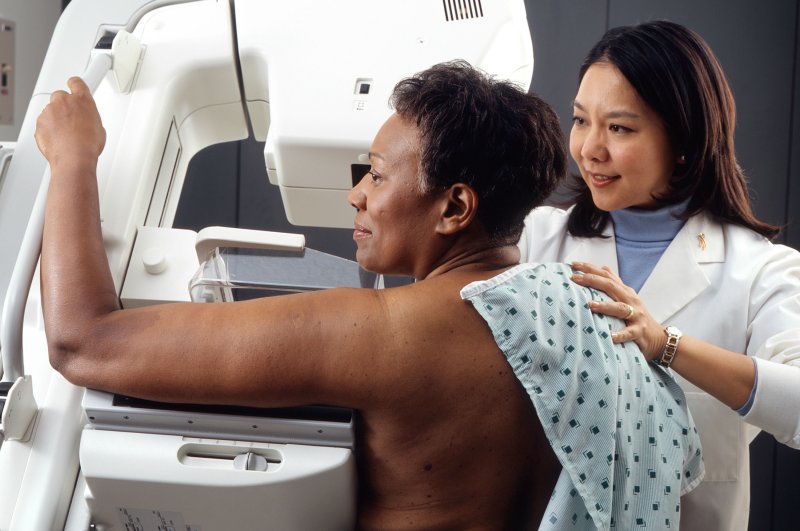Researchers in England say a blood test could help speed the time it takes for women with breast cancer to find out if a drug is working against the disease. Photo by Rhoda Baer/Wikimedia Commons
March 1 (UPI) -- A blood test for cancer DNA could predict in two to three weeks if breast cancer is responding to the drug palbociclib, according to researchers in Britain.
Scientists at The Institute of Cancer Research in London and The Royal Marsden Natonal Health Service Foundation Trust published their findings Thursday in the journal Nature Communications.
Right now, women must wait two to three months to find out with a scan if palbociclib is working.
The England's National Health Service approved the drug last November for women with previously untreated advanced breast cancer. The U.S. Food and Drug Administration on March 31, 2017, granted regular approval to palbociclib for metastatic breast cancer in postmenopausal women in conjunction with Letrozole.
Pfizer manufactures the drug under the brand name Ibrance.
Women tested with estrogen receptor positive breast cancer took part in a clinical trial of palbociclib for advanced breast cancer.
"It is exciting to see that using advances in diagnostic techniques, such as genetic tests for circulating tumor DNA, we may be able to more accurately define groups of patients and help us deliver the right treatment to the right patient sooner," Nathan Richardson, head of Molecular and Cellular Medicine at the MRC, said in a press release. "This study provides early evidence that might help us understand sooner when a drug is successfully treating breast cancer, and if not, it can be discontinued and better approaches pursued."
The blood test searches for circulating tumor DNA fragments shed by the cancer that have entered the bloodstream. DNA mutations found in cancer can be found in these samples.
Among 73 women with the PIK3C gene mutation, 52 received the drug.
Researchers compared the amount of the gene PIK3CA detected in a blood test before treatment with the amount found 15 days after starting treatment.
The researchers found 26 participants with a small decrease in PIK3CA circulating DNA at 15 days had a median progression-free survival of only 4.1 months, compared with 26 with a large decrease in PIK3CA with a median progression-free survival of 11.2 months.
"Palbociclib is one of a new class of drugs that delays cancer progression for patients with advanced breast cancer, but it's not effective for everybody," said Nicholas Turner, a professor of Molecular Oncology at The Institute of Cancer Research and consultant medical oncologist at Marsden. "Having an early indication of how likely a treatment is to work might allow us to adapt treatment -- switching some patients to an alternative drug that is more likely to benefit them."
But researchers say further studies are needed to continue testing and confirming the test method.
"These results are exploratory and care must be taken with their interpretation," the scientists wrote. "Strengths of this analysis include samples and outcome data being collected within a large phase III randomized controlled trial of a relatively homogeneous cohort of patients."















